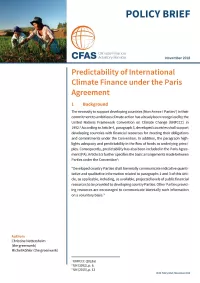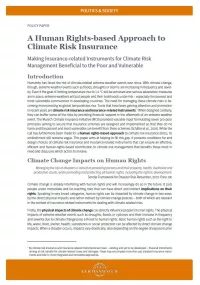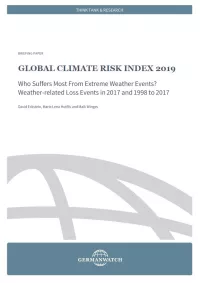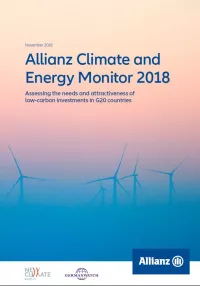CFAS Policy Brief: Predictability of International Climate Finance under the Paris Agreement

This policy brief summarizes the status quo of negotiations on Article 9.5 of the Paris Agreement, including closer looks at the actors to be involved, at the provisional list of information to be covered and at the modalities under debate. It concludes with an overview of negotiation streams at the 24th Conference of the Parties (COP24) to the United Nations Framework Convention on Climate Change (UNFCCC) that deal with Article 9.5 and provides recommendations on how to make progress on the topic.




